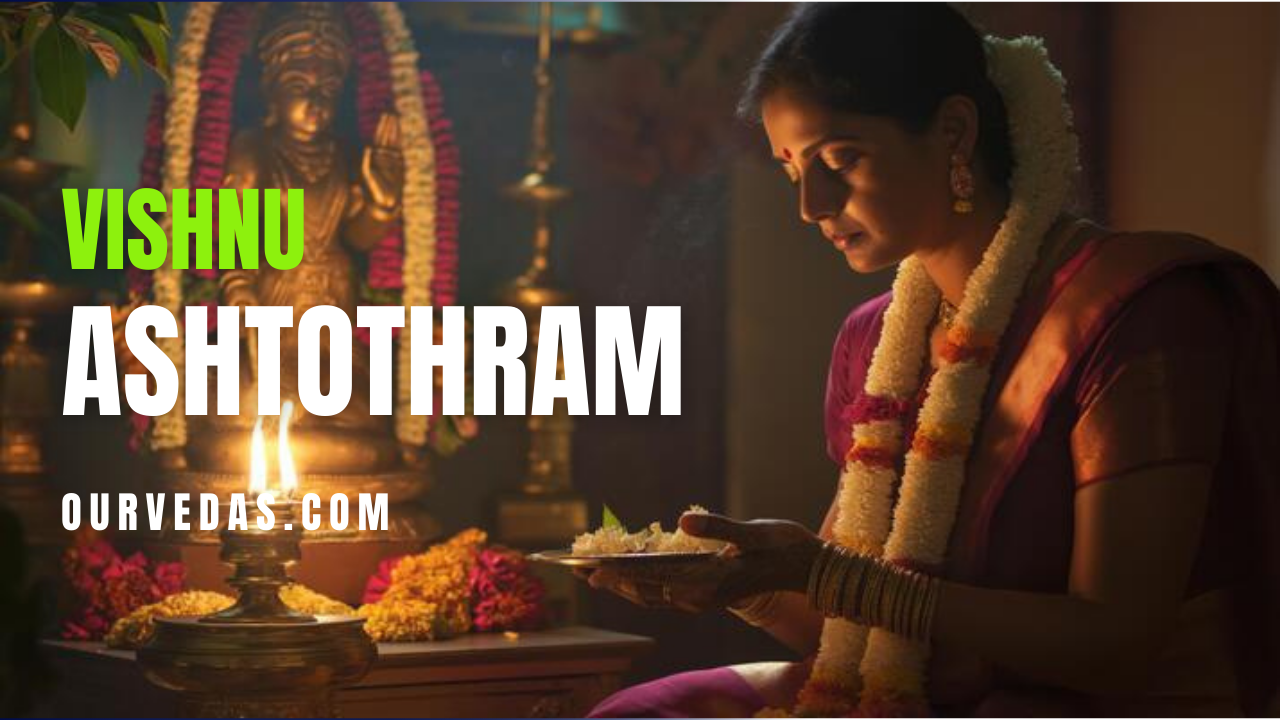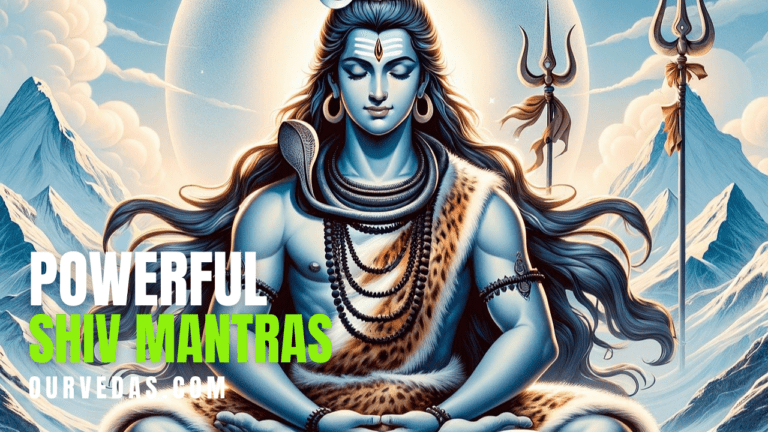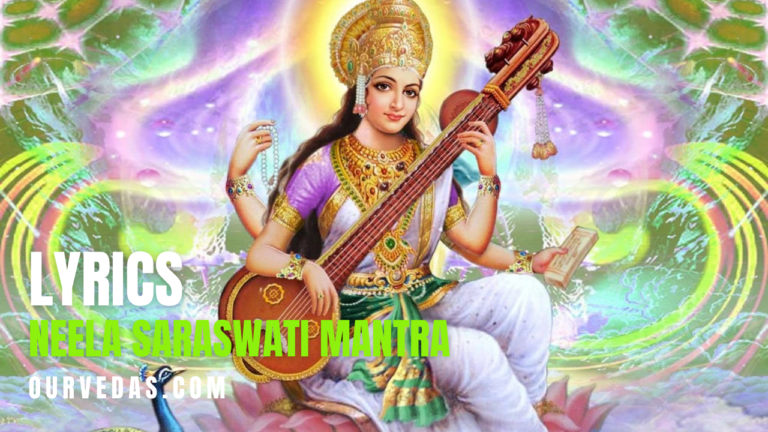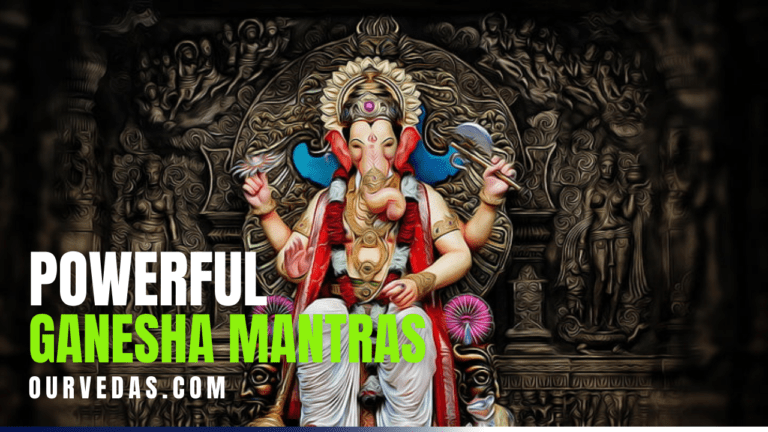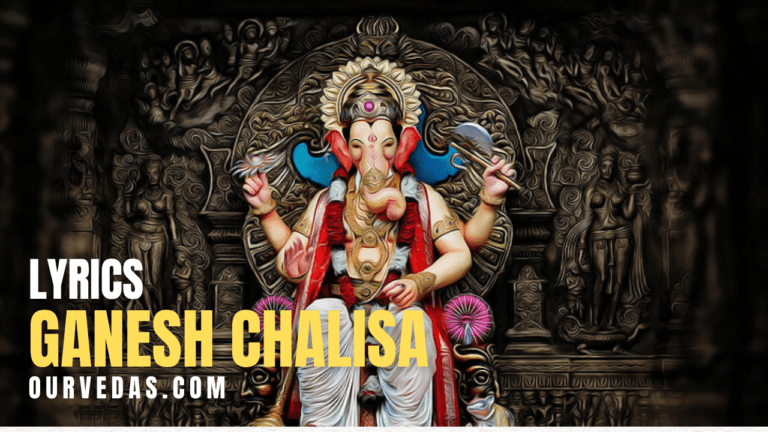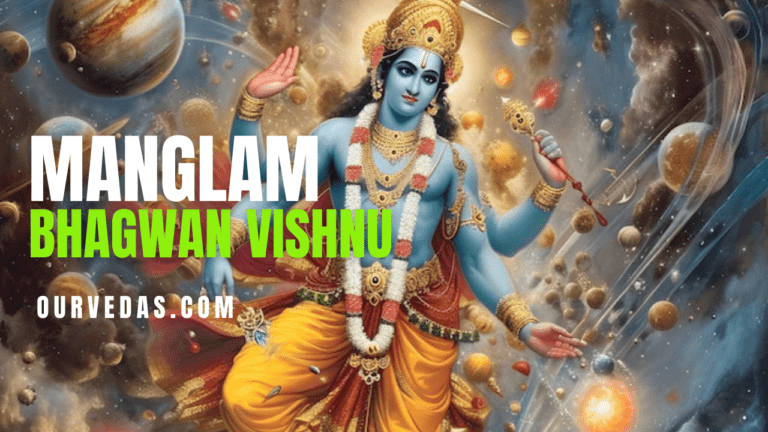Unlock the Power of 108 names in Vishnu Ashtothram: Lyrics, Meaning and History
The Vishnu Ashtothram is a hymn dedicated to Lord Vishnu, one of the principal deities in Hinduism and known as the protector and preserver of the universe. The Vishnu Ashtothram is a powerful hymn that celebrates the 108 names of Lord Vishnu. Chanting this Ashtothram regularly has immense benefits. It can lead to spiritual growth, peace of mind, and a series of other benefits. In this article, we’ll try to understand the true essence of Vishnu Ashtothram. We’ll go through the lyrics and the different names of Lord Vishnu used in the Ashtothram.
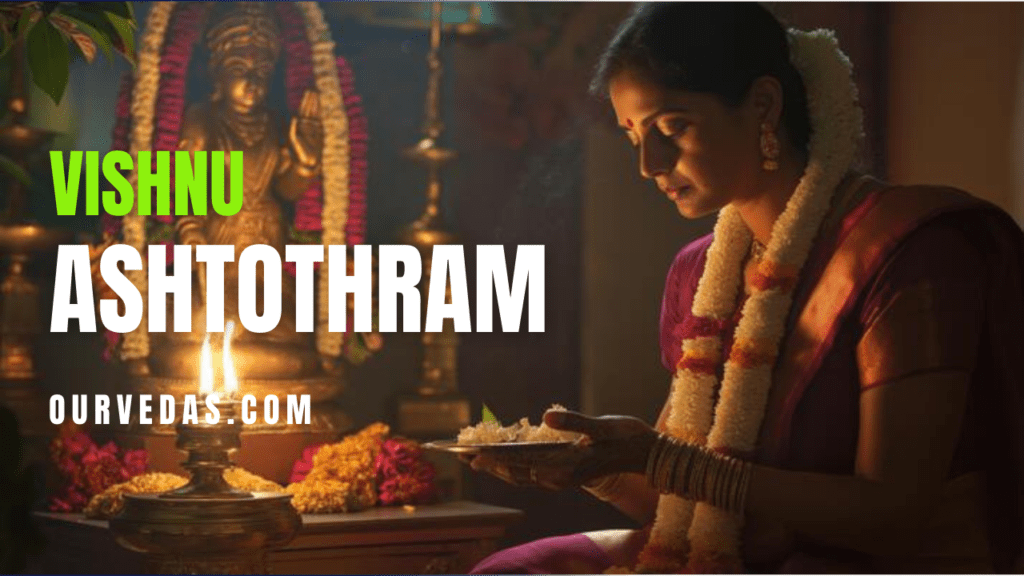
Introduction and meaning of Vishnu Ashtothram
Vishnu Ashtakshara Mantra, often referred as Vishnu Ashtothram is derived from various sacred texts. The Vishnu Ashtothram draws many devotees seeking connection with the divine.
The Ashtothram is composed of 108 names of Lord Vishnu, each representing different aspects of the deity and his different avatars. Each name reflects different aspects of Vishnu’s character and avatars, portraying Him as the supreme protector and preserver of the universe.
Each name of Lord Vishnu has unique qualities and benefits. The Vishnu Ashtothram is more than just a prayer, it is a devotional practice that reflects love and a strong aspiration for spiritual upliftment. It can make wonders in your life. It can uplift your inner peace, and cultivate mindfulness and devotion. This will eventually create a deep connection between you and the diety.
![]()
This chant has 108 names of Lord Vishnu. As you know, number 108 holds special significance in Hinduism. It represents universe’s wholeness which further enhances the allure of the Vishnu Ashtothram, making it a cherished practice for followers seeking spiritual growth and divine intervention in their lives.
Historical Significance and Traditions
Rooted in ancient Vedic scriptures, the Vishnu Ashtothram has been passed down through generations. The chant can be originally tracked back to ancient texts like Puranas and Vedas. The Vishnu Sahasranama, which lists a thousand names of Vishnu, is one of the earliest and most influential texts, and the Ashtothram is a condensed form of such veneration, making it accessible to devotees.
Different traditions has different practices related to the Ashtothram, reflecting the diverse ways it’s used. Here are few popular traditions who used this collection of mantras.
1. Vaishnavism: Vaishnavism is focused on the worship of Lord Vishnu and his avatars. Therefore, they holds the Vishnu Ashtothram in high esteem. It is often recited as daily pooja.
2. Bhakti Movement: During the Bhakti Movement, the emphasis on personal devotion and emotional connection to God brought the Vishnu Ashtothram into the hearts of many common people. Saints and poets like Tulsidas and Meerabai helped popularize the chanting of hymns like the Ashtothram, making spiritual practices more accessible to all.
Complete Lyrics: 108 Names of Vishnu in Ashtothram
Here are the lyrics to the Vishnu Ashtothram, which consists of 108 names of Lord Vishnu. Each name is typically followed by the phrase “Namah,” signifying reverence. Here is a list of complete 108 names:
ōṁ viṣṇavē namaḥ |
ōṁ jiṣṇavē namaḥ |
ōṁ vaṣaṭkārāya namaḥ |
ōṁ dēvadēvāya namaḥ |
ōṁ vr̥ṣākapayē namaḥ |
ōṁ dāmōdarāya namaḥ |
ōṁ dīnabandhavē namaḥ |
ōṁ ādidēvāya namaḥ |
ōṁ aditēstutāya namaḥ | 9
ōṁ puṇḍarīkāya namaḥ |
ōṁ parānandāya namaḥ |
ōṁ paramātmanē namaḥ |
ōṁ parātparāya namaḥ |
ōṁ paraśudhāriṇē namaḥ |
ōṁ viśvātmanē namaḥ |
ōṁ kr̥ṣṇāya namaḥ |
ōṁ kalimalāpahāriṇē namaḥ |
ōṁ kaustubhōdbhāsitōraskāya namaḥ | 18
ōṁ narāya namaḥ |
ōṁ nārāyaṇāya namaḥ |
ōṁ harayē namaḥ |
ōṁ harāya namaḥ |
ōṁ harapriyāya namaḥ |
ōṁ svāminē namaḥ |
ōṁ vaikuṇṭhāya namaḥ |
ōṁ viśvatōmukhāya namaḥ |
ōṁ hr̥ṣīkēśāya namaḥ | 27
ōṁ apramēyātmanē namaḥ |
ōṁ varāhāya namaḥ |
ōṁ dharaṇīdharāya namaḥ |
ōṁ vāmanāya namaḥ |
ōṁ vēdavaktāya namaḥ |
ōṁ vāsudēvāya namaḥ |
ōṁ sanātanāya namaḥ |
ōṁ rāmāya namaḥ |
ōṁ virāmāya namaḥ | 36
ōṁ virajāya namaḥ |
ōṁ rāvaṇārayē namaḥ |
ōṁ ramāpatayē namaḥ |
ōṁ vaikuṇṭhavāsinē namaḥ |
ōṁ vasumatē namaḥ |
ōṁ dhanadāya namaḥ |
ōṁ dharaṇīdharāya namaḥ |
ōṁ dharmēśāya namaḥ |
ōṁ dharaṇīnāthāya namaḥ | 45
ōṁ dhyēyāya namaḥ |
ōṁ dharmabhr̥tāṁvarāya namaḥ |
ōṁ sahasraśīrṣāya namaḥ |
ōṁ puruṣāya namaḥ |
ōṁ sahasrākṣāya namaḥ |
ōṁ sahasrapādē namaḥ |
ōṁ sarvagāya namaḥ |
ōṁ sarvavidē namaḥ |
ōṁ sarvāya namaḥ | 54
ōṁ śaraṇyāya namaḥ |
ōṁ sādhuvallabhāya namaḥ |
ōṁ kausalyānandanāya namaḥ |
ōṁ śrīmatē namaḥ |
ōṁ rakṣasaḥkulanāśakāya namaḥ |
ōṁ jagatkartāya namaḥ |
ōṁ jagaddhartāya namaḥ |
ōṁ jagajjētāya namaḥ |
ōṁ janārtiharāya namaḥ | 63
ōṁ jānakīvallabhāya namaḥ |
ōṁ dēvāya namaḥ |
ōṁ jayarūpāya namaḥ |
ōṁ jalēśvarāya namaḥ |
ōṁ kṣīrābdhivāsinē namaḥ |
ōṁ kṣīrābdhitanayāvallabhāya namaḥ |
ōṁ śēṣaśāyinē namaḥ |
ōṁ pannagārivāhanāya namaḥ |
ōṁ viṣṭaraśravasē namaḥ | 72
ōṁ mādhavāya namaḥ |
ōṁ mathurānāthāya namaḥ |
ōṁ mukundāya namaḥ |
ōṁ mōhanāśanāya namaḥ |
ōṁ daityāriṇē namaḥ |
ōṁ puṇḍarīkākṣāya namaḥ |
ōṁ acyutāya namaḥ |
ōṁ madhusūdanāya namaḥ |
ōṁ sōmasūryāgninayanāya namaḥ | 81
ōṁ nr̥siṁhāya namaḥ |
ōṁ bhaktavatsalāya namaḥ |
ōṁ nityāya namaḥ |
ōṁ nirāmayāya namaḥ |
ōṁ śuddhāya namaḥ |
ōṁ naradēvāya namaḥ |
ōṁ jagatprabhavē namaḥ |
ōṁ hayagrīvāya namaḥ |
ōṁ jitaripavē namaḥ | 90
ōṁ upēndrāya namaḥ |
ōṁ rukmiṇīpatayē namaḥ |
ōṁ sarvadēvamayāya namaḥ |
ōṁ śrīśāya namaḥ |
ōṁ sarvādhārāya namaḥ |
ōṁ sanātanāya namaḥ |
ōṁ saumyāya namaḥ |
ōṁ saumyapradāya namaḥ |
ōṁ sraṣṭē namaḥ | 99
ōṁ viṣvaksēnāya namaḥ |
ōṁ janārdanāya namaḥ |
ōṁ yaśōdātanayāya namaḥ |
ōṁ yōginē namaḥ |
ōṁ yōgaśāstraparāyaṇāya namaḥ |
ōṁ rudrātmakāya namaḥ |
ōṁ rudramūrtayē namaḥ |
ōṁ rāghavāya namaḥ |
ōṁ madhusūdanāya namaḥ | 108 |
Benefits of Chanting Vishnu Ashtothram
This collection of mantras has deep spiritual significance. It can shower immense benefits upon you. Engaging in this sacred practice creates a serene environment, quieting the mind and diminishing stress, allowing you to experience a lasting sense of peace. Worshipping Lord Vishnu through this chant is believed to draw his divine blessings, and offer you safety and security.

The harmonic repetition of the mantras gives rise to positive vibrations that fill your surroundings, and nurtures your soul and health. Moreover, you can have a better understanding of the divine, deepening your spiritual connection and elevate your personal spiritual journey in life. Some more benefits are:
- Mindfulness
- Emotional Healing
- Increased Devotion
- Improved Mental Health
By weaving the Vishnu Ashtothram into the fabric of your daily life, you set yourself on a transformative journey toward greater well-being and spiritual fulfillment.
Exploring the Meaning Behind Each Name
As you may have already noticed, this mantra uses different names. Below, I have mentioned the most popular names and their symbolism.
Vishnu: Lord Vishnu is one of the principal deities in Hinduism. He is known as the preserver and protector of the universe. Vishnu is often depicted with blue skin, symbolizing his infinite nature. He is usually shown lying on the serpent, Ananta, in the cosmic ocean.
Krishna: Krishna is a significant figure in Hinduism. He is known for his divine playfulness, wisdom, and role in guiding humanity through his teachings. He is known for his teachings, especially in the Bhagavad Gita. His life and stories illustrate the importance of dharma (righteousness) and devotion.
Narayana: The supreme being which embodies the essence of the universe and the source of all life.
Hari: The remover of sins and obstacles, signifying cleansing and liberation.
Rama: Rama was an incarnation of Vishnu. He is the hero of the ancient Indian epic, the Ramayana. Ramayana tells the story of his life and his quest to rescue his wife, Sita, from the demon king Ravana. Rama represents ideal behaviour and righteousness.
Govinda: The protector of cows and the land. He is worshipped for agricultural prosperity.
Vasudeva: Vasudeva was the father of Lord Krishna. He was a member of the Yadava clan. He played a vital role in the stories surrounding Krishna’s life, especially in childhood and early adulthood. Vasudeva was known for his unwavering devotion and integrity.
Madhava: Madhava is the lord of the month of Madhu, that is, spring. It symbolizes renewal and vitality.
Why 108 chants?
The number 108 holds special significance in Hinduism and Buddhism. It represents the universe’s wholeness. It is said the whole geometry of the universe, including the human body, is based upon this number.
In Vedic astrology, there are 12 zodiac signs and 9 planetary influences. Their product (12 x 9) equals 108. This connection emphasizes harmony and balance in the universe.
Some interpretations suggest that the distance from the Earth to the Sun is approximately 108 times the Sun’s diameter. Also, the distance from the Earth to the Moon is also about 108 times the Moon’s diameter.
Correct Way to chant Vishnu Ashtothram
It’s important to pronounce the mantra correctly for right benefits. One must listen to the recordings and practice daily. This can improve the chanting skills.
- To chant the Vishnu Ashtakshara Mantra properly, follow these guidelines:
- Choose a quiet place and sit in the cross legged posture. Take deep breaths to calmdown yourself.
- Sit comfortably in a position such as Padmasana (lotus position) or Sukhasana (easy pose) with your back straight.
- Before you start, take a few deep breaths to centre yourself.
- Approach the chant with a clear and focused mind. Visualize the deity in your head before chanting.
Once you start chanting, try to use clear pronunciation for each syllable. Maintain a steady pace and complete the mantra once you have started chanting. Don’t leave the mantra in the midst. While chanting, focus on the meaning of the mantra.
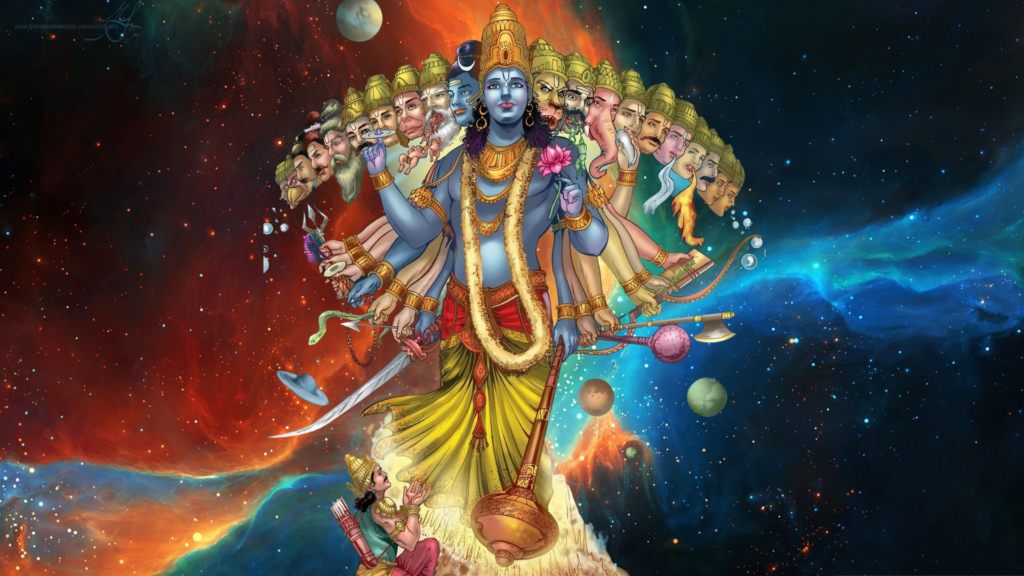
Once you have finished chanting, sit quietly for a moment and focus on your feeling. How you are feeling internally? What are your thoughts?
Remember, the intent and devotion behind the chant are just as important as the technique. Keep your intentions pure and the God will reward you.
Vishnu Ashtothram in Different Rituals and Practices
The Vishnu Ashtothram plays a significant role in various Hindu rituals. Devotees often recite the Vishnu Ashtothram as part of their daily worship to get blessings and seek protection from Lord Vishnu.
During significant festivals, such as Vaikuntha Ekadashi or Janmashtami, Vishnu Ashtothram is recited in temples and homes in different parts of India. It is believed that reciting the hymn during these auspicious times brings greater blessings. It’s believed that, if recited daily, Vishnu Ashtothram can promote physical and mental well-being of a person.
In communal worship settings, also know as satsang in India, reciting the Vishnu Ashtothram develops a sense of unity and collective devotion. It creates an energetic environment that amplifies the spiritual vibrations, and gives immense benefits to all the participants.
This chant is also used in meditation and yagnas. The Ashtothram serves as a powerful focus during meditation. It is common to recite the Vishnu Ashtothram in ceremonial fire offerings (Homa or Yagna).
Conclusion
Vishnu Ashtothram is a powerful spiritual tool that enriches the devotion of millions of Lord Vishnu’s followers. Whether utilized in daily worship, it enhances the spiritual journey of a person. It provides guidance and support during vital life events. By embracing this ancient hymn, devotees can unlock its myriad benefits, cultivating a life grounded in devotion, harmony, and a meaningful relationship with the universe.

